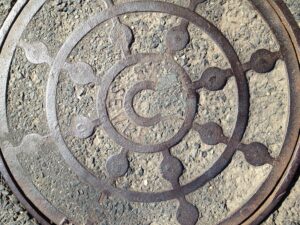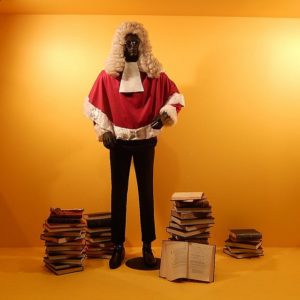The Protect Lawful Streaming Act was passed on December 2020, as part of the Covid-19 stimulus omnibus bill, the Consolidated Appropriations Act, 2021.
The Act adds a section 2319C to the Copyright Act on digital transmission services, defined as services having as a primary purpose to publicly perform works by digital transmission. The Act prohibits providing such services commercially or for financial gain without the authorization of the copyright owner.
The penalties are a fine and imprisonment for not more than three years, or both, or imprisonment for not more than five years, or both, if the offense “was committed in connection with one or more works being prepared for commercial public performance; and … the person knew or should have known that the work was being prepared for commercial public performance.” The penalty can be a fine and 10 years in prison if the offense is a second or subsequent offense under section 2319C or Section 2319(a).
The ‘‘Copyright Alternative in Small-Claims Enforcement Act of 2020’’ or ‘‘CASE Act of 2020’’ was also passed as part of the omnibus bill. It creates Chapter 15 of the Copyright Act and establishes a Copyright Claims Board in the Copyright Office (CCB)), which much be established within one year of the enactment of the Act.

Composition of the Copyright Claims Board
The CCB, which will be an administrative tribunal for matters related to copyright, will be composed of three full-time Copyright Claims Officers appointed by the Librarian of Congress, after consultation with the Register of Copyrights, who must be attorneys with a least seven years of experience, and who must “have substantial familiarity with copyright law and experience in the field of alternative dispute resolution, including the resolution of litigation matters through that method of resolution.” The three Officers will be appointed, respectively, to a four-year term, to a five-year term, or a six-year term.
The Register of Copyrights must also hire at least two full-time Copyright Claims Attorneys “to assist in the administration of the Copyright Claims Board,” which must have “substantial experience in the evaluation, litigation, or adjudication of copyright infringement claims” and no fewer than three years of “substantial experience in copyright law.” They will be appointed to a five-year term.
Both Copyright Claims Officers and Copyright Claims Attorneys will have to recuse themselves if there they have reason to believe there is a conflict of interest. Parties will have to refrain from ex parte communication with the Copyright Claims Officers and the Copyright Claims Attorneys.
Participation in CCB proceedings is voluntary, but respondents need to opt-out within 60 days
Participation in a CCB proceeding is voluntary, and the parties retain their right to pursue their claim in a court of law “or any other forum.” However, if a respondent fails to opt out within a 60-day period after having been served by the claimant, she or he “loses the opportunity to have the dispute decided by a court created under article III of the U.S. Constitution and waives the right to a jury trial regarding the dispute.”
The respondent will be able to file a counterclaim.
Scope of jurisdiction
The CCB will have power to adjudicate copyright infringement claims if the claim does not exceed $30,000. The CCB will also be able to adjudicate claims for a declaration of noninfringement of a copyright, and claims of section 512(f) DMCA misrepresentations, that is, a misrepresentation in the DMCA takedown notice of the infringing nature of a material or activity, or that a “material or activity was removed or disabled by mistake or misidentification.”
Applicable laws
The CCB will follow the regulations established by the Register of Copyrights under the new Chapter 15 and other “relevant principles of law under this title.” In case of conflict with “a judicial precedent on an issue of substantive copyright law that cannot be reconciled,” then the CCB will “follow the law of the Federal jurisdiction in which the action could have been brought if filed in a district court of the United States, or, if the action could have been brought in more than one such jurisdiction, the jurisdiction that the [CCB] determines has the most significant ties to the parties and conduct at issue.” It thus appears that the parties will still being able to benefit from the positions and tests used by the Courts in their respective Circuits.
Legal representation
The proceedings will take place at the CCB offices, and the parties will not have to be present. The procedure will be written, but the CCB will be able to hear the parties or their counsels via “internet-based applications and other telecommunications facilities, except that, in cases in which physical or other nontestimonial evidence material to a proceeding” cannot be thus provided to the CCB, in which case the CCB “may make alternative arrangements for the submission of such evidence that do not prejudice any other party to the proceeding.”
The parties can be represented by an attorney or by a law student “who is qualified under applicable law governing representation by law students of parties in legal proceedings and who provides such representation on a pro bono basis.”
Procedure – the claim
Parties will initiate the proceeding by filing a claim with the CCB which will include a certified statement of material facts in support of the claim and a filing fee. The amount of the fee will be established by the Copyright Office, which indicated in its Small Claims Report (see note p. 140) that “[a] conforming amendment to section 708 may be advisable.”
The claim will be then reviewed by a Copyright Claims Attorney to ensure that the claim is compliant with Chapter 15 and other applicable regulations. The statute of limitations is three years after the claims accrued.
If the claim is compliant, the claimant is notified and can then serve it to the defendant. If it does not comply, the claimant will be permitted to file an amended claim withing thirty days after receiving the notice that the claim does not comply and will have to file an additional filing fee. If the claim is still not compliant, the claimant will be given a second opportunity to amend the claim not later than thirty days after the date of the second notice of non-compliance, without having, however, to pay another filing fee. If the claim is still not complaint, the proceeding will be dismissed without prejudice.
If the claim is against an online service provider storing infringing material or linking to it, the claim will have to state that the claimant has previously notified the service provider by a DMCA notice, and that the service provider has failed to expeditiously remove or disable access to the material after receiving such notice. The opposing parties can file a counter claim, which compliance is similarly reviewed by a Copyright Claims Attorney.
All claims can be dismissed without prejudice for unsuitability by the CCB if the CCB concludes that a necessary party or an essential witness has not been contacted, or if evidence or expert testimony is lacking, or if the claim involves an issue exceeding the competence scope of the CCB, or if the claimant becomes a member of a class action. A claim can also be voluntary dismissed, with no prejudice, by the claimant.
Even if a claim is compliant, the parties can choose any time to settle the case, either during a conference with a Copyright Claim Officer or by submitting a settlement proposal to the CCB.
If the claim proceeds, the CCB will have the power to make factual determinations, based upon a preponderance of the evidence.
If the respondent to the claim does not appear, or failed to pursue defending the claim, the CCB can issue its decision by default.
Permissible remedies
The CCB may award actual damages and profit. It can also award statutory damages, which cannot exceed $15,000 for each work infringed. Statutory damages cannot exceed $7,500 per work infringed or a total of $15,000 in any proceeding.
Effect of a CCB determination
If the CCB issues a final determination, including a default determination, it will preclude, solely with respect to the parties to such determination, the case to be litigated again before any court or tribunal, or before the CCB, of the claims and counterclaims asserted and determined by the CCB. However, parties will be able to litigate again, in a court of law or with the CCB, about the same facts, about claims or counterclaims which were either not previously asserted or which had not been determined by the CCB. Also, if the CCB determined ownership of a copyright for the purposes of resolving the case, such determination will not have any preclusive effect in any other action or proceeding before a court of law or a tribunal , including the CCB.
No legal precedent
Decisions by the CCB will not, however, be relied upon as legal precedent, and thus a CCB caselaw will not stem from the adjudicated claims. Following the cases is, however, likely to be enlightening, especially since a Copyright Claim Officer dissenting with a CCB decision will be able to file her or his dissent. This is particularly interesting as all final determinations of the CCB will be published on a website. Parties will be able to submit a written request for reconsideration or amendment of a final determination made by the CCB, if done no later than thirty days after the issuance of the final determination, “if the party identifies a clear error of law or fact material to the outcome, or a technical mistake.”
Possible negative effect of the CCB
While the CCB will make it easier and less costly for copyright holders to defend their rights, and this is certainly a positive effect, it may also lead to frivolous claims be filed, and so called “copyright-trolls” who engage in mass copyright litigation may find it an efficient tool to pursue their trade.
Positive effect of the CCB
Artists, writers, small businesses, and entrepreneurs will be able to defend their rights at a cost much lower than the costs of litigation in a federal court (the court which has jurisdiction over copyright cases). The Register of Copyrights will also establish regulations for claims seeking less than $5,000 (exclusive of attorneys’ fees and costs). In these cases, at least one Copyright Claim Officer will determine the outcome of the case and the determination will have the same effect as one issued by the entire CCB.
Image is courtesy of Flickr user Alan Levine under a CC BY 2.0 license.
 Three Copyright Claims Officers
Three Copyright Claims Officers


